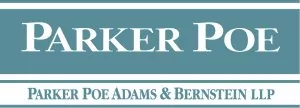On March 15, 2017, German prosecutors raided the Munich offices of Jones Day as part of their own investigation into the Volkswagen ("VW") diesel emissions scandal and VW's luxury car unit, Audi. The U.S.-based law firm has represented VW since 2015, when it began conducting a comprehensive internal investigation to identify those responsible for the scandal. Although VW has long insisted that no one on its management board is implicated, Jones Day's final report ultimately led VW to plead guilty to fraud, obstruction and other charges. As a result, VW has incurred more than $22 billion in fines and settlements. Although the results of Jones Day's investigation were provided to VW and the U.S. Department of Justice, the report was never publicly released. In light of the March 15 raid, it appears that the German authorities now want access to this (and other) protected information.
In the United States, the work product and attorney-client privileges are sacrosanct. Therefore, subject to limited exceptions, the government is not usually privy to communications between a lawyer and his/her client. However, the concept of attorney-client privilege in Germany is far more fluid and contentious. In fact, there is no general principle under German law that recognizes the attorney-client privilege. Instead, the German courts are left to interpret provisions of the civil and criminal codes of procedure along with the Federal Lawyers' Act, often with varying results. For example, the Regional Court (Landgericht) of Hamburg issued a landmark decision in 2010 approving the seizure of internal investigation documents from a law firm (decision 608 Qs 18/10). However, in 2015, the Braunschweig Regional Court came to the opposite conclusion, holding that documents prepared by external lawyers in an internal investigation were protected because they were prepared in the context of a defense (decision 6 Qs 116/15). (For commentary, click here). Here, the German authorities argue that to the extent there is a privilege, it does not apply because Jones Day was hired to conduct a limited internal investigation and was "not functioning as the company's legal representative."
The inconsistent application of privilege in Germany is not an anomaly. Many other foreign countries have varying levels of privilege protection. According to Forbes, in a soon-to-be published survey by the Association of Corporate Counsel, less than 40 percent of European respondents (all in-house counsel) reported that they enjoy privilege. That leaves more than 60 percent of European respondents who are left without the benefit of these protections.
Furthermore, raiding U.S.-based law firms in foreign countries, although rare, is not unprecedented. For example, in 2009, The American Lawyer reported that the Russian interior ministry had raided the Moscow offices of DLA Piper and White & Case in their investigation into the development of a hotel in the city.
Ultimately, the German raid of Jones Day suggests, at minimum, that companies should be careful when hiring foreign law firms or U.S. law firms with foreign offices to conduct their internal investigations. In choosing counsel, companies must remember that a law firm remains subject to the local law in which the firm's offices are located, which includes the treatment of attorney-client and work product privileges. To the extent it is possible, multinational companies should consider keeping their privileged information in jurisdictions with the strongest privilege protections, like the United States. Otherwise, a company risks exposing sensitive documentation and may suffer preventable reputational damage.
This Client Alert is intended to inform readers of recent developments in the field of International Business. It should not be considered as providing conclusive answers to specific legal problems.



